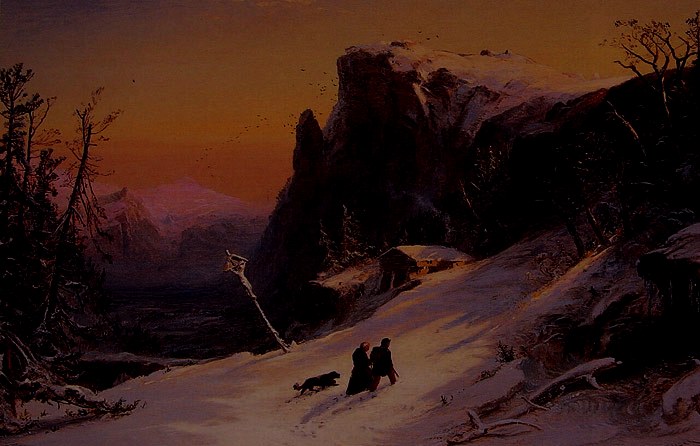 Nineteenth century minister Edmund Sears, who held to original Unitarianism during a time of radical upheaval in the Church, was the author of many theological works that were influential even outside of Unitarian Christianity.
Nineteenth century minister Edmund Sears, who held to original Unitarianism during a time of radical upheaval in the Church, was the author of many theological works that were influential even outside of Unitarian Christianity.
But it was his poem of peace, written in the mid-1800s when the whole world seemed torn by war, that has become his greatest legacy. Despite its somewhat extreme pacifism, the melancholy and longing for peace suit well the principles of the Reformed Unitarian Church.
On this Christmas Eve, we share the American Unitarian Reform version of Reverend Sears’s It Came Upon A Midnight Clear:
It came upon a midnight clear, that glorious song of old,
_from angels bending near the earth to touch their harps of gold:
“Peace on the Earth, goodwill to all, from heaven’s all-gracious King.”
The world in solemn stillness lay to hear the angels sing.
Still through the cloven skies they come with peaceful wings unfurled,
_and still their heavenly music floats o’er all the weary world:
above its sad and lowly plains, they bend on hovering wing,
and ever o’er its Babel sounds, the blessèd angels sing.
Yet, with the woes of sin and strife, the world has suffered long;
_beneath the angel-strain have rolled two thousand years of wrong;
And we, at war with our kin, hear not the love-song which they bring.
O hush the noise, and cease your strife, to hear the angels sing.
And you, beneath life’s crushing load, whose forms are bending low,
_who toil along the climbing way with painful steps and slow:
look now, for glad and golden hours come swiftly on the wing.
O rest beside the weary road and hear the angels sing!
For lo, the days are hastening on — by prophet bards foretold —
_when, with the ever-circling years, comes round the age of gold,
when peace shall, over all the earth, its ancient splendors fling,
and all the world give back the song which now the angels sing.
